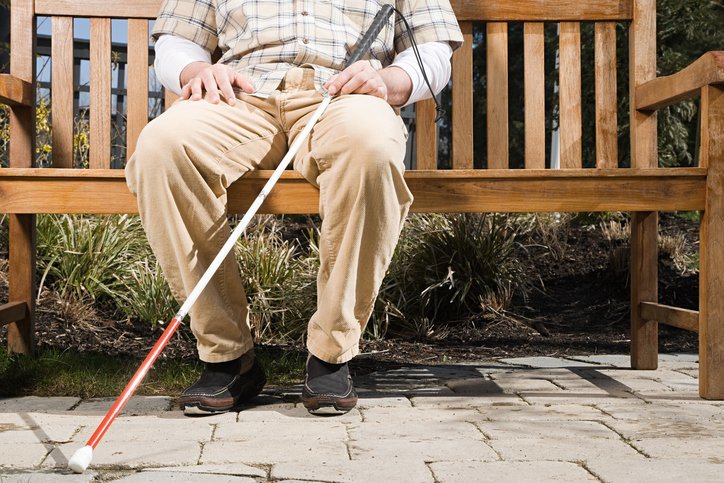Contents:
- Medical Video: VIDEO: Blind man gains vision after limbal stem cell transplant surgery
- Is there a possibility of blindness being cured?
- Restores and protects vision with stem cells
- Miracle retinal prosthesis
- An ounce of prevention is worth a pound of cure
Medical Video: VIDEO: Blind man gains vision after limbal stem cell transplant surgery
Blindness is a very frightening condition for many people. But for some people, that is an unavoidable reality. In this world, many people face the prospect of negative changes in their visual abilities. If you are still able to read, you are very lucky.
According to the World Health Organization (WHO), 285 million people worldwide are thought to be at risk of blindness. Of these, 39 million people will be blind and 146 million people will have decreased vision.
Is there a possibility of blindness being cured?
Treatment for blindness depends on the cause. In countries of Africa, Latin America, Oceania and Asia there are many people who have poor vision as a result of bias errors. If that is the cause, then the condition can be overcome by using prescription drugs and glasses.
Blindness caused by nutrition can be overcome by changes in diet. For cases such as cataracts, it can be cured by surgery. For cases caused by inflammation and infection, it can be cured with drugs in the form of drops or pills. Corneal transplantation can also help people who have vision loss due to corneal scarring.
Although 80% of blind people can be prevented or cured, there are still 20% of cases that cannot be cured. Such cases usually occur in people who face gradual loss of vision until they are totally blind.
Impaired retinal degeneration cannot be cured, because the disease breaks down the tissue layer that contains light-detecting cells. There are a number of degenerative diseases, including pigmentosa retinitis, macular degeneration, and Usher's syndrome.
Healing for lost vision depends on the cause as well. Patients who lose vision due to nerve optic damage or stroke usually cannot be cured. Patients with long-standing retinal detachment, in general, cannot be repaired with the ablation repair operation. Patients who have corneal scarring usually have a good prognosis if they can perform treatment after surgery.
Restores and protects vision with stem cells
A doctor named Raymond Iezzi stated that they were working on a new method to grow stem cells from the patient's own tissue sample. This is a regenerative approach that can one day be used to restore sight to people who have lost their vision. Embryonic stem cells can be used to build new pigmented retinal epithelial cells (cells that nourish retinal visual cells and absorb light) that can be transplanted into patients.
Without adequate neuroprotection, new transplanted cells may be susceptible to cells that are replaced for disorders of retinal degeneration. This problem underlies the importance of gene therapy research, which aims to improve the biochemical abnormalities that cause cell death. However, this form of treatment will function as a recovery of vision from impaired retinal degeneration. Just like prosthetics that can be used to restore limb function, retinal prosthesis can also restore lost vision.
Miracle retinal prosthesis
MNT reports a story about Allen Zderad, a blind man effectively who can now see thanks to his new retinal prosthesis. The way this method works is to connect a camera to a pair of glasses that send visual information to a small chip behind the eye through a small computer.
The chip can send light signals directly to the optic nerve through the damaged retina and provide patients with visual information in the form of flashes of light. When Zderad used the retinal prosthesis for the first time, he described artificial "rough", but significant vision.
Because this technology is in charge of restoring basic vision, perhaps with an increase in devices, this technology can treat patients with severe macular disease, such as Stargardt macular dystrophy or those associated with macular degeneration, someday.
An ounce of prevention is worth a pound of cure
National Eye Institute (NEI) suggests a number of simple steps that can be taken to ensure your eyes stay healthy, such as:
- Do not smoke. Smoking has been associated with an increased risk of cataracts, optic nerve damage, and those associated with macular degeneration.
- A balanced diet and maintaining a healthy weight.
- Cleansing hands and contact lenses properly to reduce the risk of eye infections.
- Knowing family eye health history. Many serious eye disorders are hereditary, such as retinitis pigmentosa.
- Take eye tests regularly.
Although there are already advanced technologies that can restore some eye diseases, but if we can prevent them, then they can provide many benefits later on. Just as the saying goes "prevention is better than cure".












